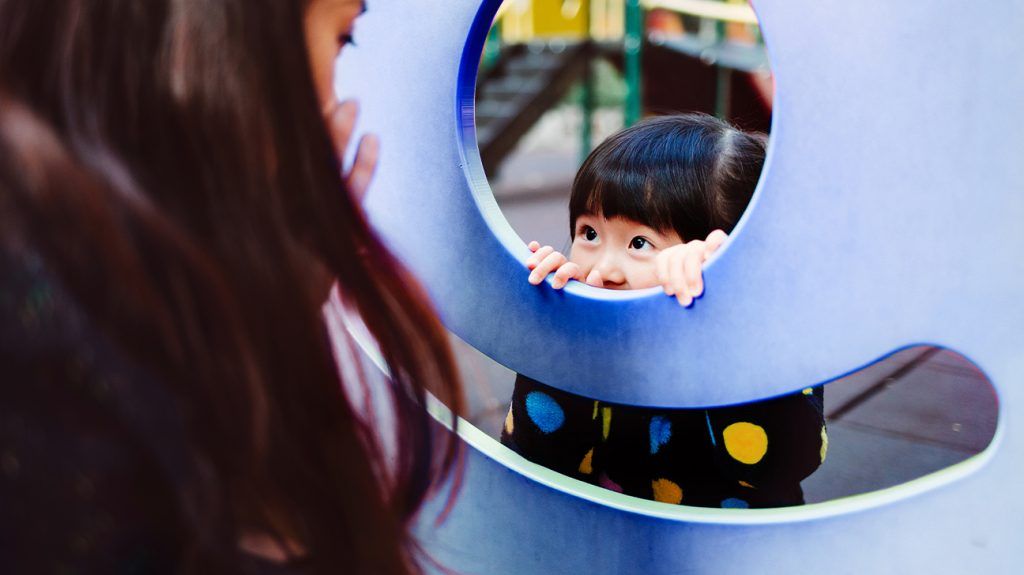SCD can make it harder to decode meaning in the language we use, but treatment approaches like working with a speech-language pathologist can help manage symptoms.

Does your child have trouble with taking turns in conversation, greeting others, or responding to peers in socially appropriate ways?
While it’s not uncommon for kids to have difficulty in social situations from time to time, children and teens with social (pragmatic) communication disorder (SCD) — aka social communication disorder — may experience these difficulties more often.
SCD involves challenges using language to communicate with others. A person with SCD can understand the meaning of individual words and comprehends grammar rules, but they may have trouble with “pragmatic” language. Pragmatic language refers to the way we use language to communicate in daily social interactions.
If your child has SCD, you likely have a lot of questions: Will they outgrow it? Is there a treatment? How can I help them?
Your questions and concerns are normal. With the right information and support, you can help your child improve their social communication skills.
Social communication disorder is a neurodevelopmental condition. This means it appears during our early development.
A diagnosis of social (pragmatic) communication disorder applies when a child has difficulty using language in social situations. They may have trouble:
- sharing information
- understanding implied meaning (communication that’s not direct or literal)
- changing the way they communicate in different social settings and with different people
Children with SCD typically show symptoms in early childhood, but you might not notice the signs early on.
SCD tends to become more noticeable as your child gets older, since difficulties with pragmatic language become easier to spot as kids enter more complex social situations. This is why some experts
Social communication disorder is different from autism spectrum disorder (ASD). While both include differences in communication, they’re two separate diagnoses.
What’s the difference between these two conditions? Autistic people tend to have certain features that someone with SCD wouldn’t necessarily show, including:
- repetitive patterns of behavior
- highly focused interests
- strict adherence to routine
- sensory differences
According to the Diagnostic and Statistical Manual of Mental Disorders (DSM-5), the criteria for social communication disorder include:
- difficulty with social communication, like greeting people or sharing information
- challenges adjusting communication to match the context or the needs of the listener
- difficulty following rules of conversation and storytelling (like taking turns in conversation, rephrasing when misunderstood, and using nonverbal, or unspoken, communication)
- challenges decoding what’s not verbally stated and nonliteral meanings of language (like idioms, humor, and metaphors)
If you have a child with SCD, you may notice they have trouble with verbal and nonverbal communication skills, like:
- changing speech to fit different people and situations — for example, knowing how and when to talk differently with a peer versus an adult, or family member versus someone they just met
- taking turns in conversation, such as how and when to respond to others, letting others speak, and staying on topic
- responding appropriately to others — for example, they may have unexpected or slightly off-the-mark answers
- social greetings, like saying hello, introducing themselves, or asking others how they’re doing
- talking about their feelings
- using nonverbal communication gestures like waving and pointing
- understanding verbal and nonverbal cues
- understanding humor, metaphors, and puns
If your child understands some communication and language skills but has a hard time applying them in the context of social situations, it’s possible they may have SCD.
The specific cause of social communication disorder isn’t fully understood. A child could have
If your child has SCD, they may have difficulty with the “give-and-take” nature of conversations. They may tend to have a literal way of thinking, or they may not understand certain humor, like sarcasm.
Children with SCD are as intelligent as anyone else, but SCD symptoms can create challenges with learning and school.
As a parent, you can help your child learn and practice social skills in a safe, supportive environment. Some ways to do this include:
- Read books. When you read to your child, consider asking open-ended questions about the book. Take turns offering ideas of what characters may be thinking and why.
- Plan structured playdates. Invite a friend over and have a structured activity for the children to engage in. Over time, you can invite different or more children to a variety of places (such as home or the playground).
- Play games. This can be helpful when practicing taking turns. Talk to your child while playing, ask open-ended questions, and encourage back-and-forth dialogue.
- Use visual supports. Props, toys, or pictures could help your child communicate when they can’t find the right words.
With support, time, and patience, your child can learn the social skills needed to help them successfully communicate and engage with others. Like any skill, these strategies need to be taught — typically by speech therapists who have training in addressing social communication issues — and reinforced through practice at home.
If you have concerns about your child’s social communication, one good first step is speaking with their pediatrician or teacher. They can connect you with someone who can evaluate your child for SCD.
When you talk with your child’s pediatrician, they might refer you to a speech-language pathologist (SLP) for an evaluation. The goal of the evaluation is to understand your child’s communication skills in different settings.
During the evaluation, the SLP will interact with your child and ask questions to determine how they use and understand language in social contexts. To evaluate your child, the SLP may:
- interview you and your child’s teacher(s)
- play with your child and engage in structured activities to assess communication and language skills
- observe your child at school or at home
Once your child has a diagnosis, their care professional might help you develop a treatment plan. Treatment plans often involve collaboration between parents, teachers, and SLPs. Your child’s plan will likely be tailored to their specific needs and will focus on improving their communication skills, particularly in social situations.
One-on-one therapy sessions with SLPs can be helpful in teaching new communication skills. Kids can also apply these skills in group sessions, which allow them to practice what they’ve learned in a social setting.
Treatment approaches for social communication disorder
- Augmentative and alternative communication (AAC). Words, pictures, drawings, objects, gestures, and technology devices can help children communicate — especially younger children or those who have trouble with words.
- Video-based instruction. Stories told through video can be an engaging way to demonstrate social skills and promote social understanding.
- Comic book conversations. Stories told through comic books show conversations between two or more people, demonstrating examples of helpful communication.
- Social skills groups. A psychologist or SLP hosts groups of two or more children and uses instruction, role-playing, and feedback to teach social skills and work on communication.
- Social scripts. Scripted prompts are provided to teach children how to use language during certain social interactions. Over time, your child can use them spontaneously.
- Social stories. Books and stories are used to explain social situations, promote problem-solving, and help kids learn behavior and responses that fit the social situation they’re in.
You can also work with your child’s school to develop an individualized education program (IEP), which may include speech therapy and in-class support and accommodations.
Whether you suspect or know your child has social (pragmatic) communication disorder, support is available.
While social communication disorder symptoms can impact relationships for both children and adults who live with it, working with a speech-language pathologist can help you learn strategies that, over time, allow you to reduce the impact of SCD on your social life.
